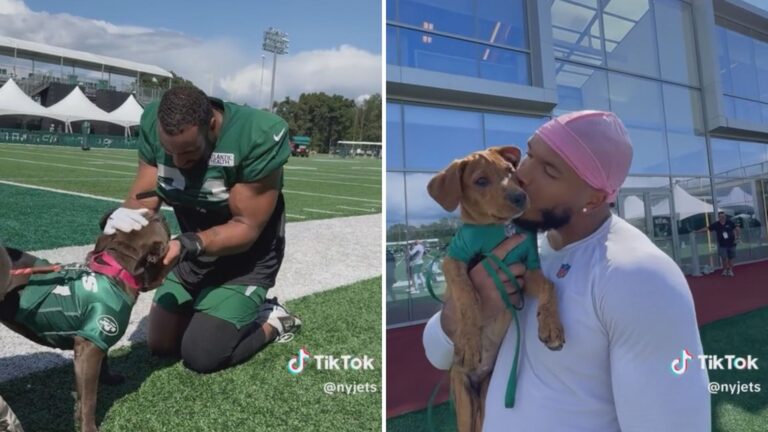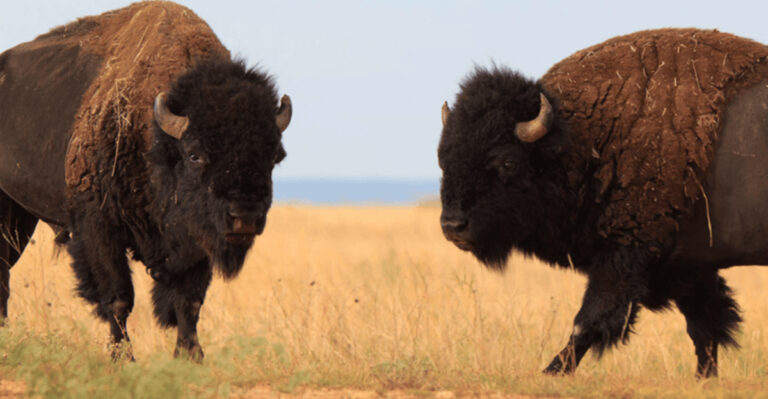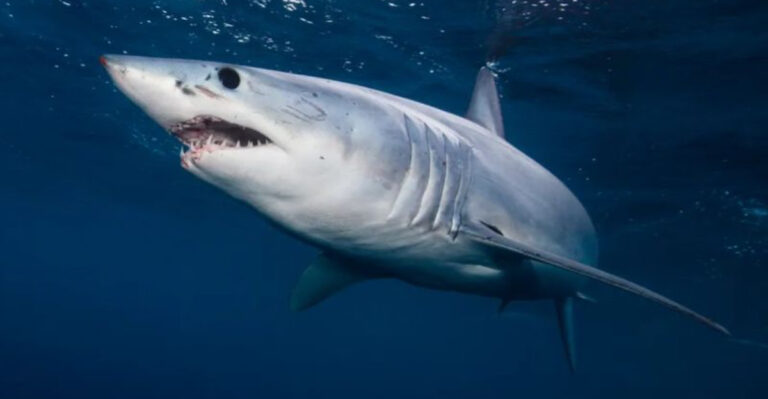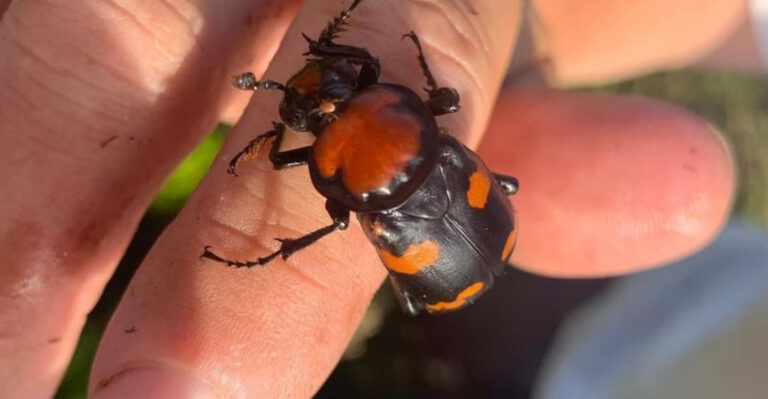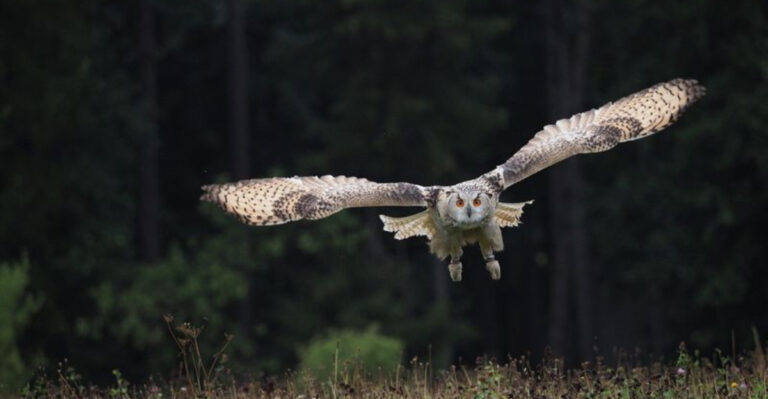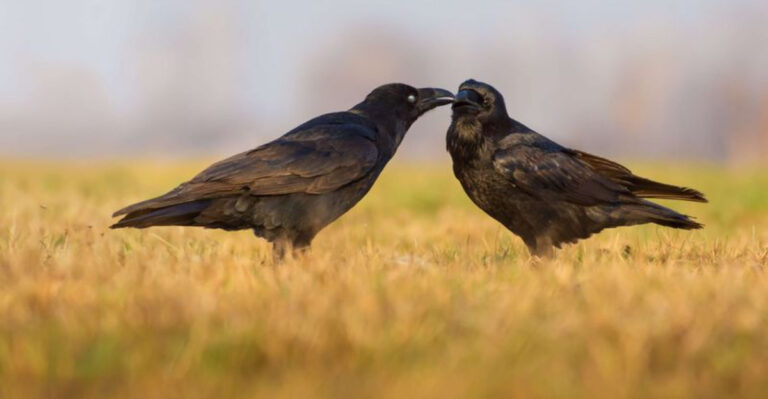14 Dog Breeds That Should Never Be Exposed To Cold
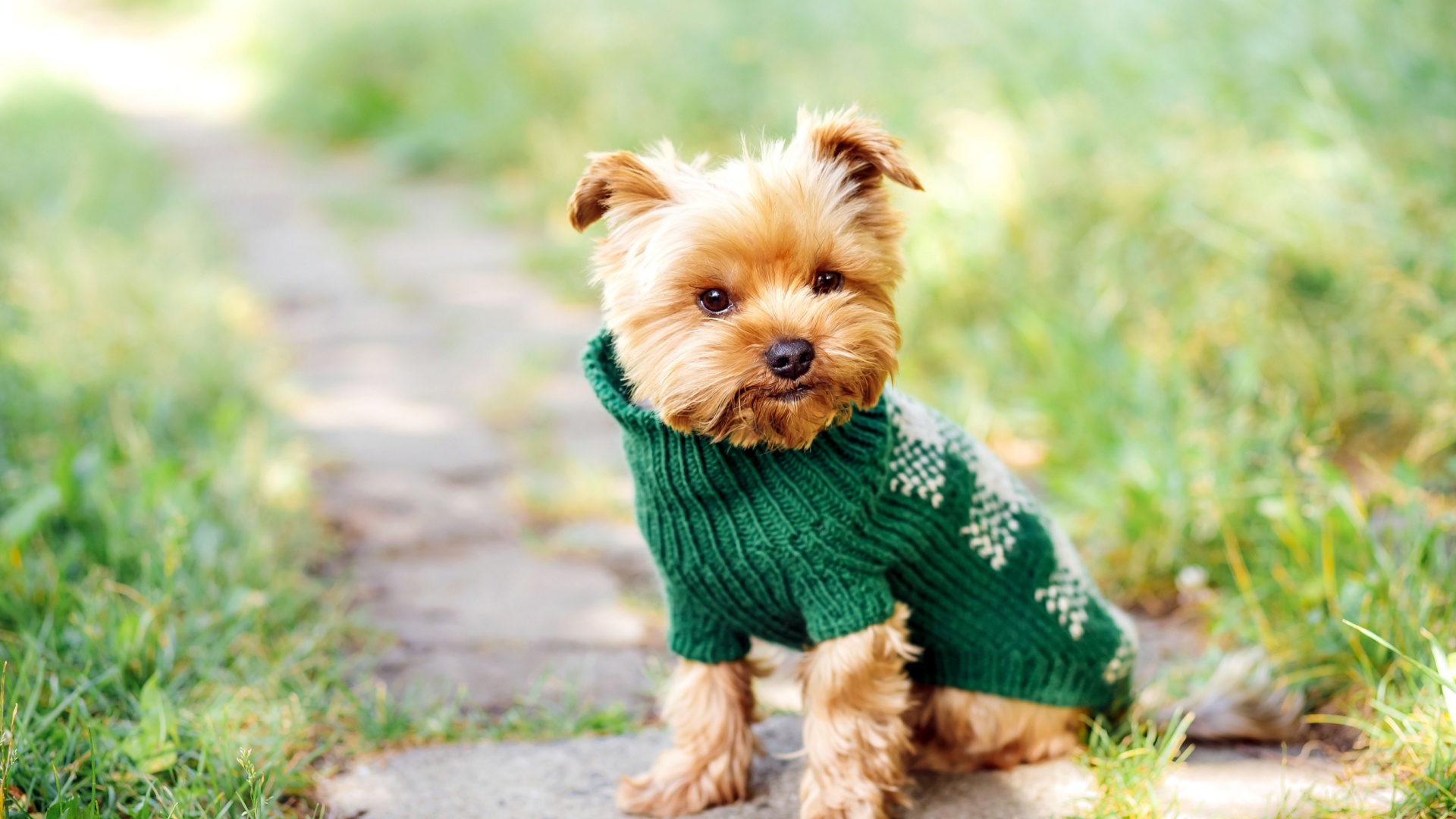
Some dogs are simply not equipped to handle cold climates due to their body structure, coat type, or overall size. Unlike breeds developed for snowy conditions, these dogs lack the natural insulation needed to keep them warm. This makes it especially important for owners to recognize which breeds are more susceptible to chilly temperatures.
Without adequate protection, exposure to the cold can cause discomfort, stress, or even health problems in these more delicate dogs. By understanding the specific needs of these vulnerable breeds, pet owners can take the necessary precautions to keep their canine companions safe, warm, and comfortable in colder weather.
1. Chihuahua
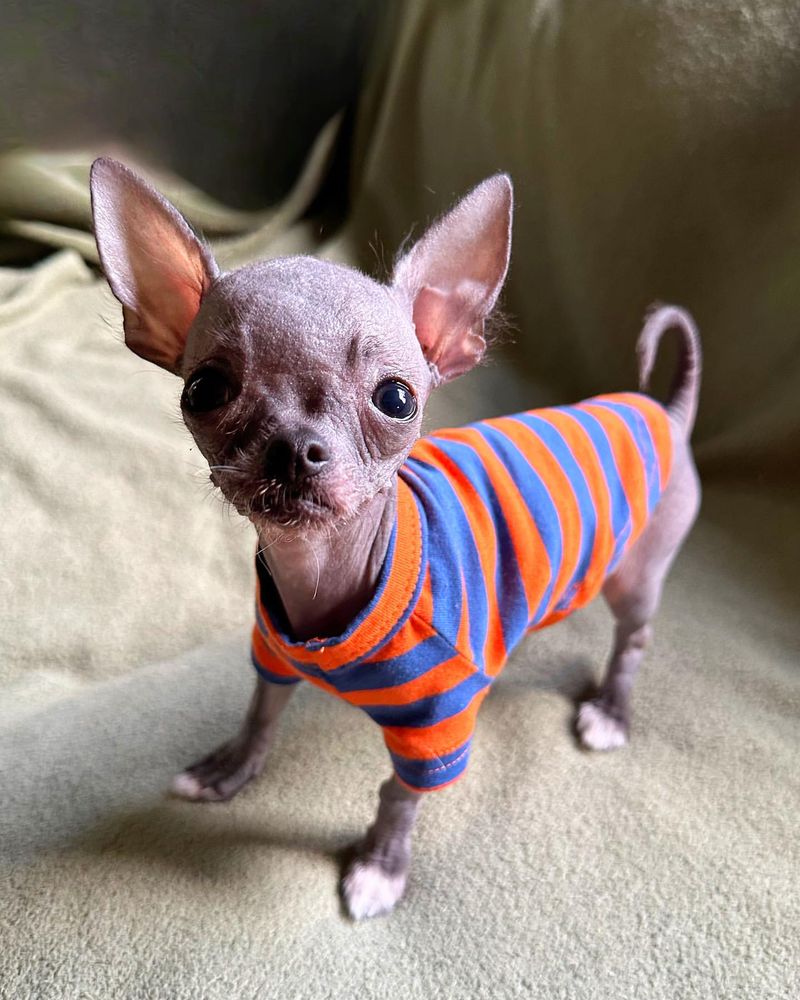
Chihuahuas, known for their small stature and vibrant personalities, are particularly sensitive to cold weather due to their thin coats and tiny bodies. These little dogs lack the natural insulation needed for cold climates, making them susceptible to hypothermia.
Owners should ensure that their Chihuahua is always dressed warmly when exposed to the cold, using sweaters and blankets to keep them cozy. Their sensitivity to cold can also impact their energy levels, as they may become lethargic if they get too chilly.
Indoor play and exercise are preferable during colder months to keep them active and healthy. Owners should provide warm bedding and avoid walking them on icy surfaces to prevent frostbite on their delicate paws.
Chihuahuas thrive in indoor environments where the temperature is controlled, and they can snuggle in warmth. Keeping them protected from the cold not only enhances their comfort but also ensures their well-being. Regular vet check-ups can further help monitor their health during winter months.
2. Italian Greyhound
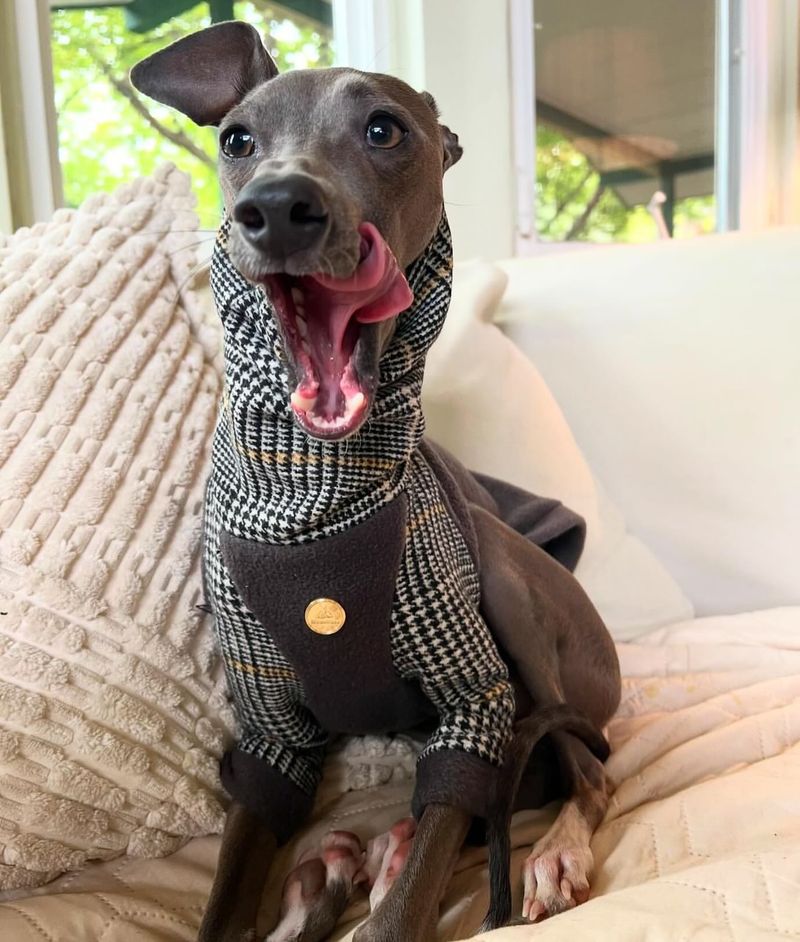
Italian Greyhounds are sleek and elegant, with a graceful build that is not suited for cold weather. Their thin skin and lack of body fat make them highly prone to feeling the chill, and they require special attention when temperatures drop. Providing them with warm clothing is essential, along with limiting their exposure to cold environments.
These dogs often shiver when they are cold, a sign that they need immediate warmth. Owners can create cozy indoor spaces with heated pads or blankets to keep their Greyhounds comfortable. It’s also wise to avoid taking them outside during cold spells, especially for long periods.
Italian Greyhounds enjoy mild temperatures and indoor play, where they can stretch out and stay warm. Protecting them from cold is vital for their health, as prolonged exposure can lead to respiratory issues and other complications. Investing in quality outerwear can make a significant difference in their winter experience.
3. Chinese Crested
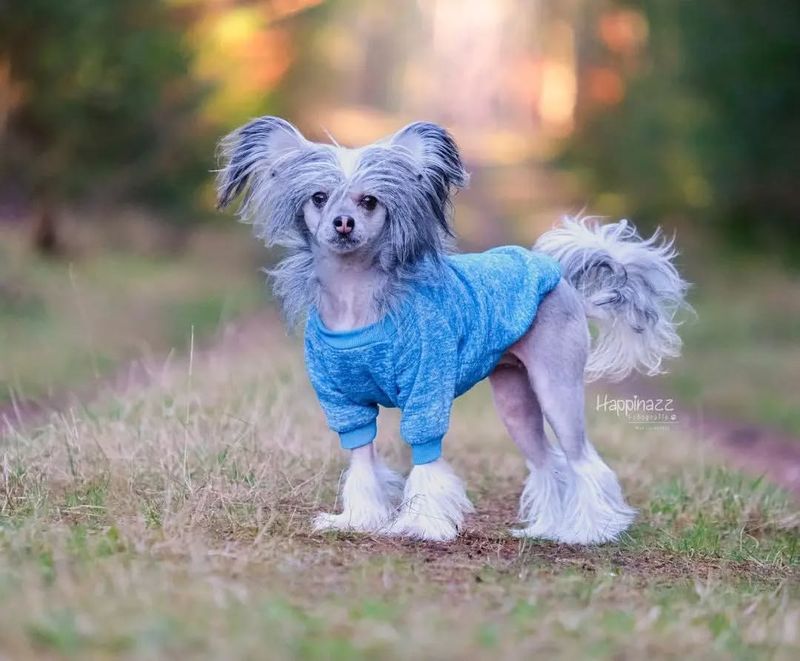
The Chinese Crested dog, known for its distinctive hairless appearance, is extremely sensitive to cold weather. Without the natural protection of fur, they rely on human intervention to stay warm, making coats and sweaters a necessity during winter months.
This breed’s lack of insulation makes hypothermia a real concern if they are left unprotected. Owners should focus on keeping their homes warm, especially during the night, and providing soft, heated bedding for their Chinese Crested. Outdoor activities should be minimized and always include appropriate clothing, ensuring they aren’t exposed to icy surfaces.
These dogs are best kept indoors where the climate can be controlled. Their unique look demands extra attention when it comes to keeping them warm, and owners must be diligent in monitoring their comfort levels during colder periods. Preventative measures are key to ensuring their health and happiness during winter.
4. Xoloitzcuintli (Mexican Hairless Dog)
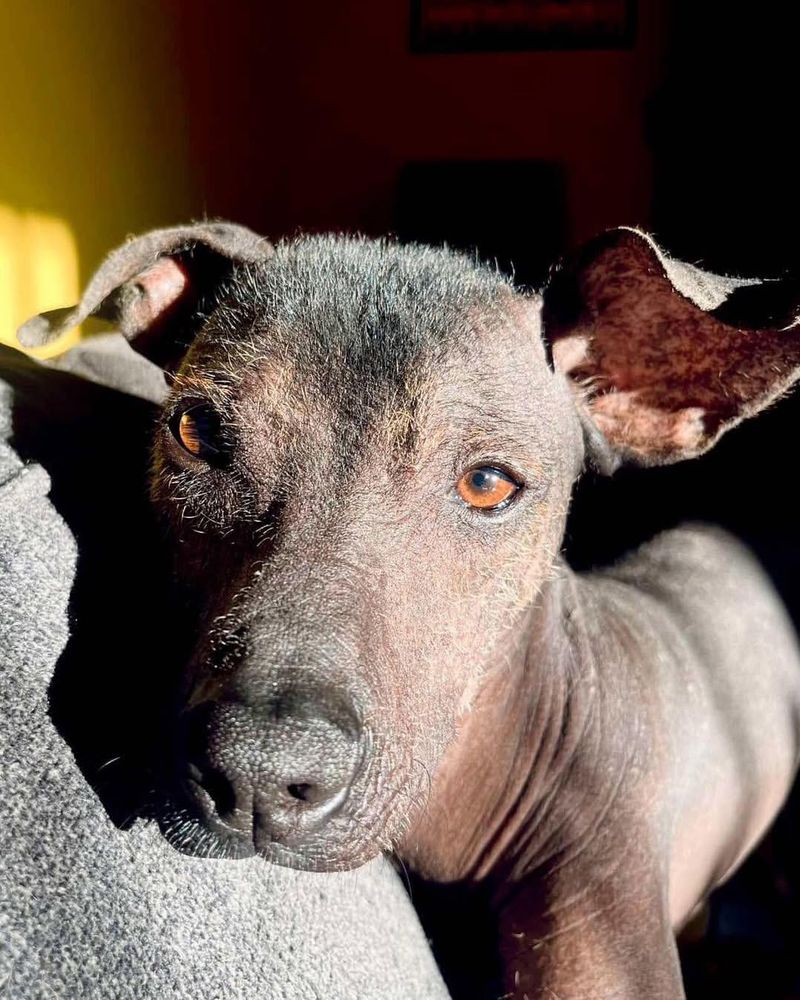
The Xoloitzcuintli, often called the Mexican Hairless Dog, lacks a fur coat, making it highly susceptible to cold weather. Their skin is their only barrier against the elements, demanding careful management of their exposure to chill.
Owners must equip them with protective clothing and limit their time outdoors in low temperatures. This breed thrives in warmer climates, but when faced with cold, they require indoor heating and cozy resting areas.
It’s crucial to monitor their skin for any signs of dryness or damage, as cold air can exacerbate these issues. Providing a balanced diet rich in nutrients helps maintain their skin health and overall well-being during winter.
Creating a warm indoor environment ensures they stay comfortable, while outdoor activities should be brief and well-supervised. Ensuring their warmth is vital for their comfort and health.
5. Whippet
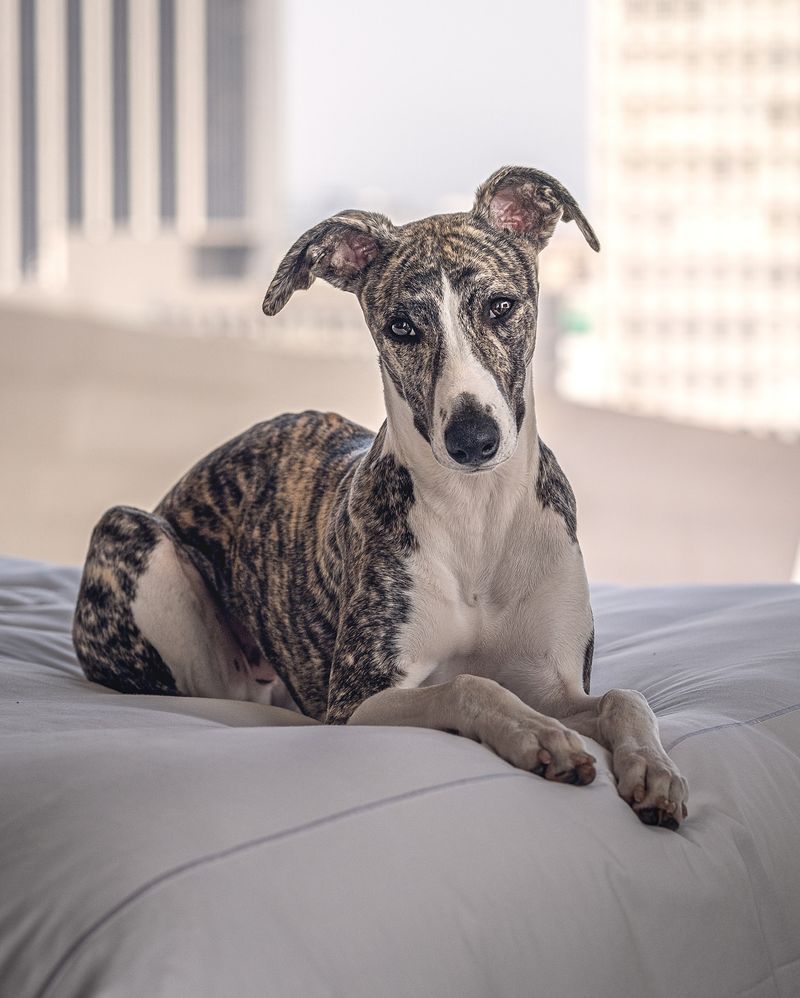
Whippets are athletic and lean, but their slender build and short coats leave them vulnerable to cold weather. Without adequate protection, they can quickly become chilled, which affects their energy and mood. Owners should invest in quality outerwear to keep their Whippets warm when venturing outside.
These dogs are known for their love of running, but during winter, indoor exercise might be more suitable to protect them from the cold. Providing a warm, comfortable home environment with cozy bedding helps maintain their well-being.
Whippets may enjoy brief outdoor adventures if adequately protected, but long exposure to the cold is not advisable. Their health can be compromised without proper warmth, so monitoring their comfort and adjusting activities accordingly is essential. Keeping them cozy ensures they remain happy and active, even during chilly months.
6. Pharaoh Hound
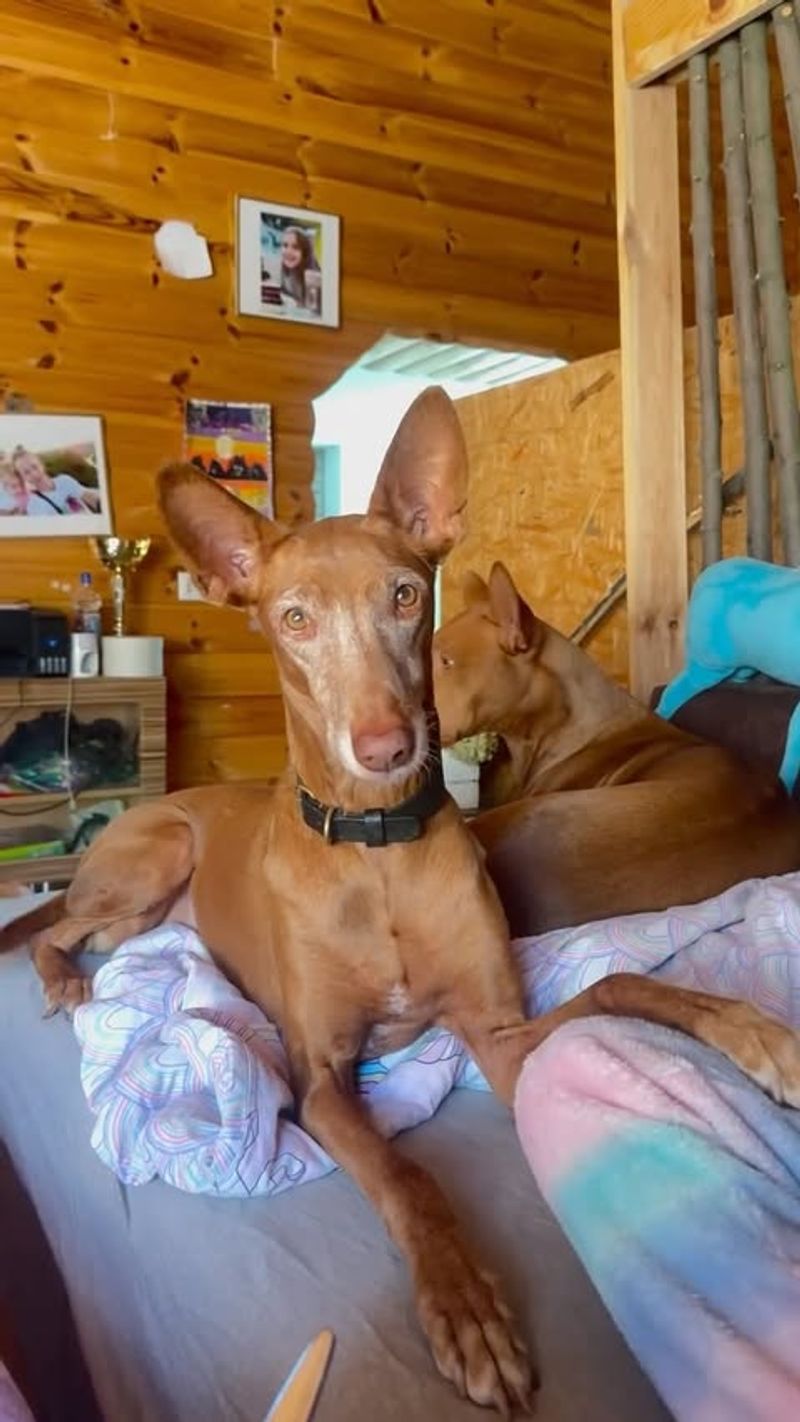
Pharaoh Hounds are elegant and robust, yet their short coats provide little insulation against cold weather. These dogs originate from warm climates, making them less adaptable to chilly environments. To ensure their comfort, owners should provide warm clothing and restrict exposure to cold air.
These hounds prefer indoor environments during winter, where they can lounge comfortably. Ensuring they have access to warm beds and heated areas is crucial for their well-being. Short, brisk walks are preferable over prolonged outdoor exposure during cold spells.
Outdoor play should be limited, and always under supervision to prevent any cold-related health issues. Providing warmth is not only about physical comfort but also promotes their overall health. With the right care, Pharaoh Hounds can stay active and healthy through the cold months.
7. Dachshund
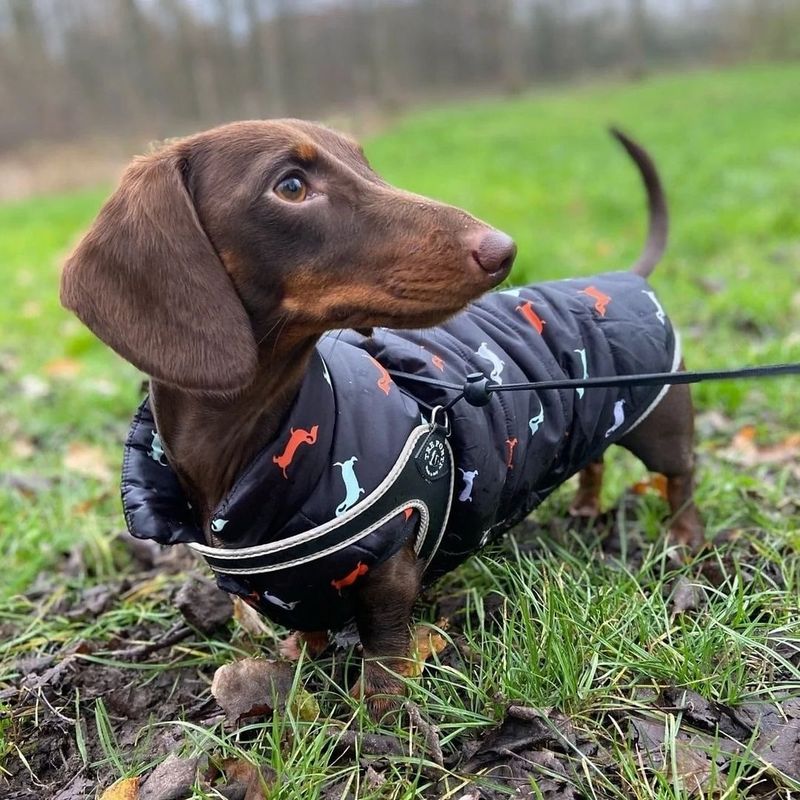
Dachshunds, with their long bodies and short legs, are not well-suited to cold weather. Their small stature and thin coats make them prone to feeling the chill, requiring extra care during winter months. Owners should use sweaters or coats to keep them warm when outside.
These dogs enjoy snuggling and will appreciate warm and comfy indoor spaces. Limiting their time outdoors is wise, as their low build increases the risk of them getting cold quickly. Providing heated beds can enhance their comfort and help maintain their health.
Dachshunds may love exploring, but their adventures should be kept brief in cold weather. Ensuring they have a warm environment to return to is essential for their happiness. With proper precautions, they can enjoy the colder months without discomfort.
8. Boston Terrier
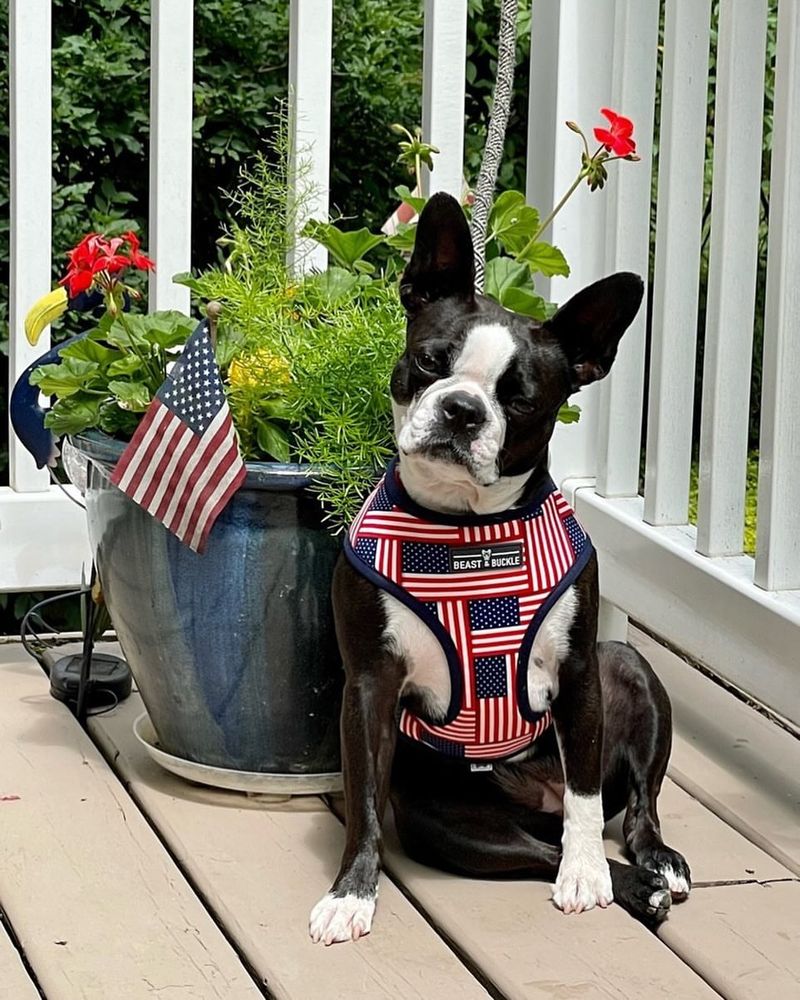
Boston Terriers, with their smooth, short coats, are not naturally equipped for cold weather. They are susceptible to temperature drops, and owners need to ensure that these dogs are kept warm with appropriate clothing during winter outings.
Limiting their outdoor exposure is advisable. These terriers are playful and love being around people, so engaging them in indoor activities can keep them entertained and warm. Providing a cozy living environment with heated blankets or pads can enhance their winter experience.
Outdoor walks should be short, and care must be taken to protect their paws from icy surfaces. Keeping them warm is essential not only for comfort but also to prevent respiratory issues. With the right care, Boston Terriers can thrive even when the temperature drops.
9. French Bulldog
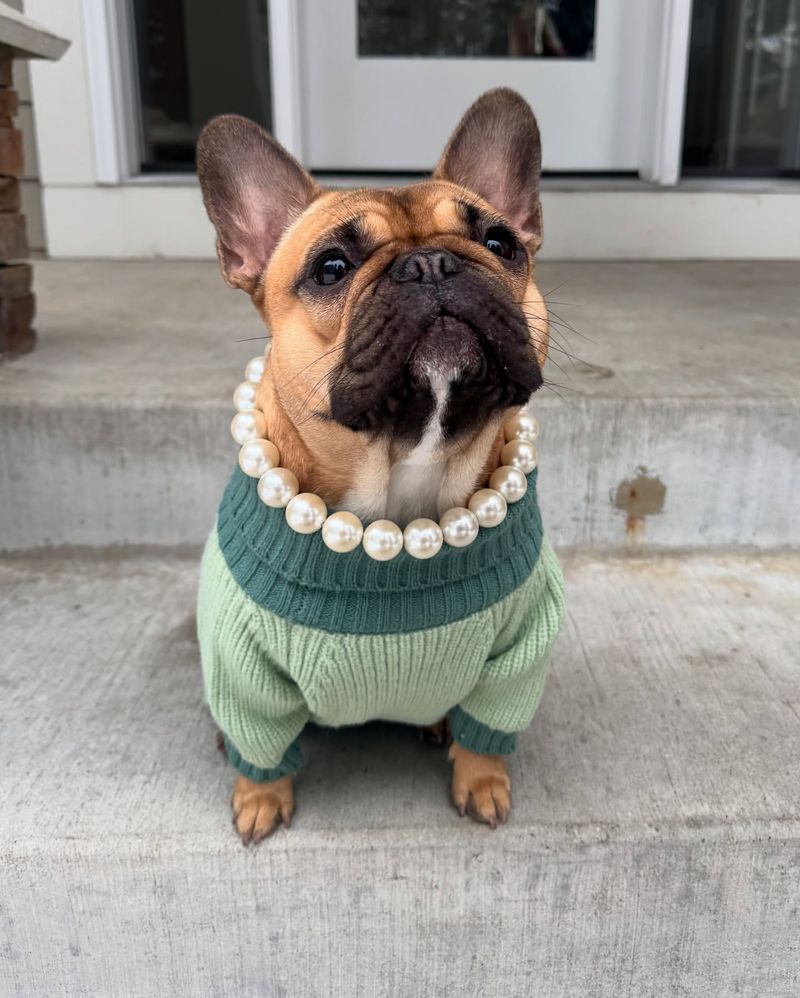
Would you look at this cutie? French Bulldogs, known for their charming personalities, are sensitive to temperature extremes, including cold. Their short coats offer little protection against the chill, necessitating the use of jackets or sweaters during outdoor activities. Throw in a nice pearl necklace and you’re good to go out, and win some hearts along the way!
Owners must be mindful of their comfort and warmth. These dogs enjoy indoor companionship and can be quite playful. Engaging them in indoor games ensures they remain active and healthy during winter months. Providing a warm, cozy space with blankets adds to their comfort.
Outdoor exposure should be limited, and walks should be brief to avoid the risk of hypothermia. Protecting their paws from icy surfaces is also important. By maintaining a warm and caring environment, French Bulldogs can enjoy the winter season without any issues.
10. Pug
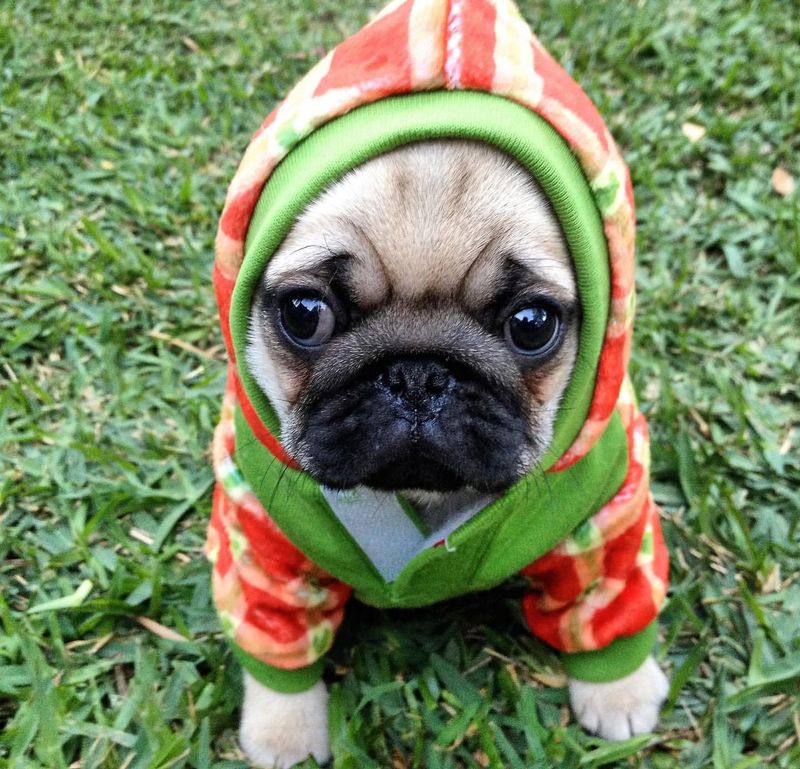
Pugs, with their adorable wrinkled faces and compact bodies, are not built for cold climates. Their short coats and brachycephalic features make them vulnerable to cold weather, requiring extra attention to keep them warm. Outfitting them in warm clothing is essential for their comfort.
These dogs are known for their playful nature, making indoor activities a great way to keep them entertained during cold months. Ensuring they have access to heated bedding helps maintain their well-being and happiness.
When taking Pugs outdoors, it’s crucial to keep outings short and protect their paws from the cold ground. Their health can be compromised without adequate warmth, so owners must be vigilant in monitoring their comfort. With proper care, Pugs can enjoy the winter without discomfort.
11. Shih Tzu
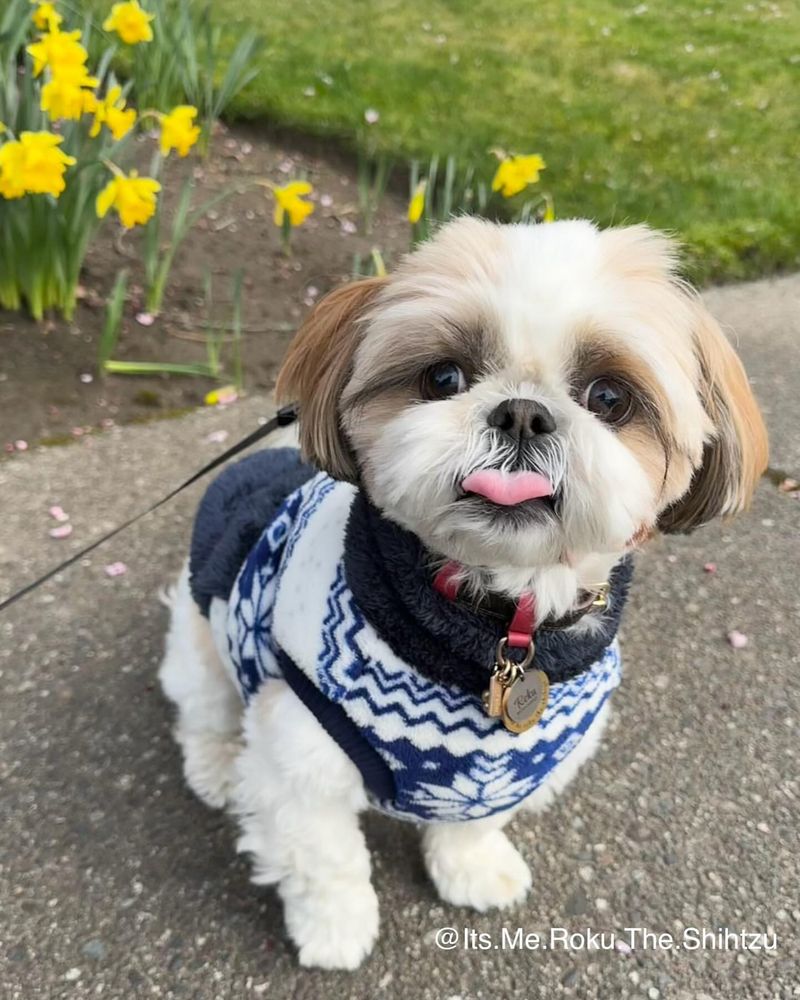
Shih Tzus, with their luxurious coats, might seem suited for cold, but their fine hair and small bodies make them sensitive to chilly weather. They require grooming to prevent matting, especially when wearing clothing for warmth.
Owners should invest in good quality coats and ensure their dogs stay dry and cozy. These affectionate dogs enjoy spending time indoors, where they can be pampered with soft bedding and heated areas.
Outdoor play should be limited and always include protective clothing to avoid cold-related health issues. Keeping Shih Tzus warm is essential for their health, as they are prone to respiratory problems if exposed to cold for too long.
With loving care and attention, they can remain happy and healthy throughout the winter months. And honestly, they can pull off a sweater like no other! Am I right?
12. Yorkshire Terrier
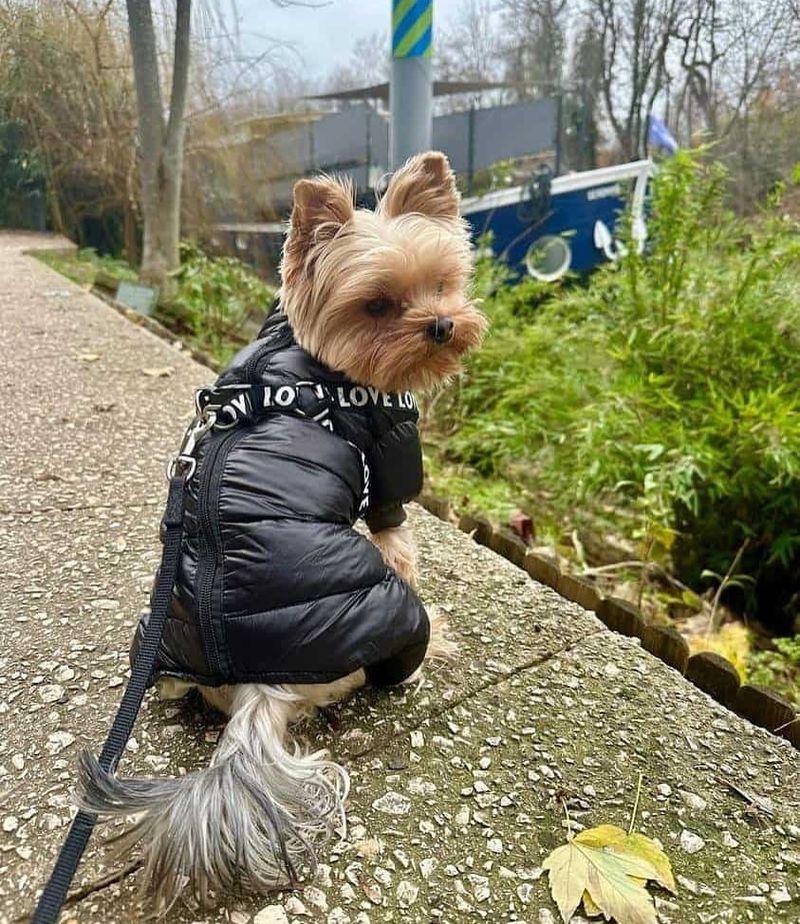
Yorkshire Terriers, or Yorkies, with their fine, silky coats, are not naturally equipped for cold weather. These small dogs require warm clothing and environments to stay comfortable during winter. Owners should focus on creating a cozy indoor space with heated beds and blankets.
Yorkies are vibrant and full of energy, enjoying playtime indoors where they can stay warm. Outdoor activities should be minimized during cold spells, and always include protective gear to keep them safe from the elements.
These dogs can quickly become chilled, so keeping them warm is crucial for their overall health. By providing the right care and environment, Yorkshire Terriers can thrive even when the temperature drops.
13. Maltese
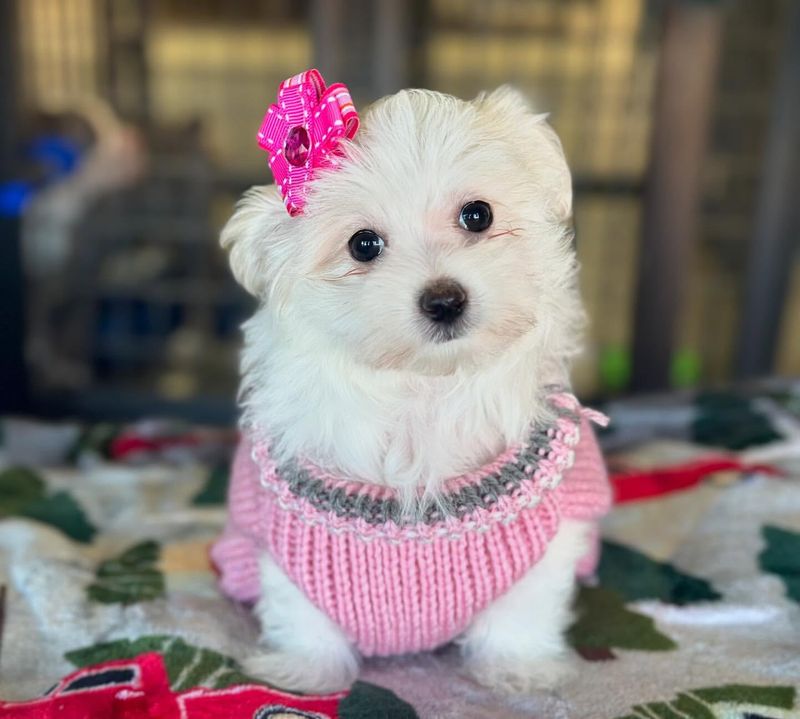
Maltese dogs, with their lovely long coats, might appear equipped for cold, but their hair lacks undercoat insulation, making them vulnerable to chilly weather.
These dogs benefit from wearing warm clothing when temperatures drop, along with minimizing their time outside. Indoor activities suit them well, as they can enjoy warmth and comfort away from the cold. Providing a cozy living area with heated beds enhances their comfort and helps prevent cold-related issues.
Owners should ensure that Maltese dogs are always kept warm, especially when venturing outside. Their health and happiness depend on maintaining a consistent and warm environment during colder months. With proper care, they can enjoy the winter season comfortably.
14. Greyhound
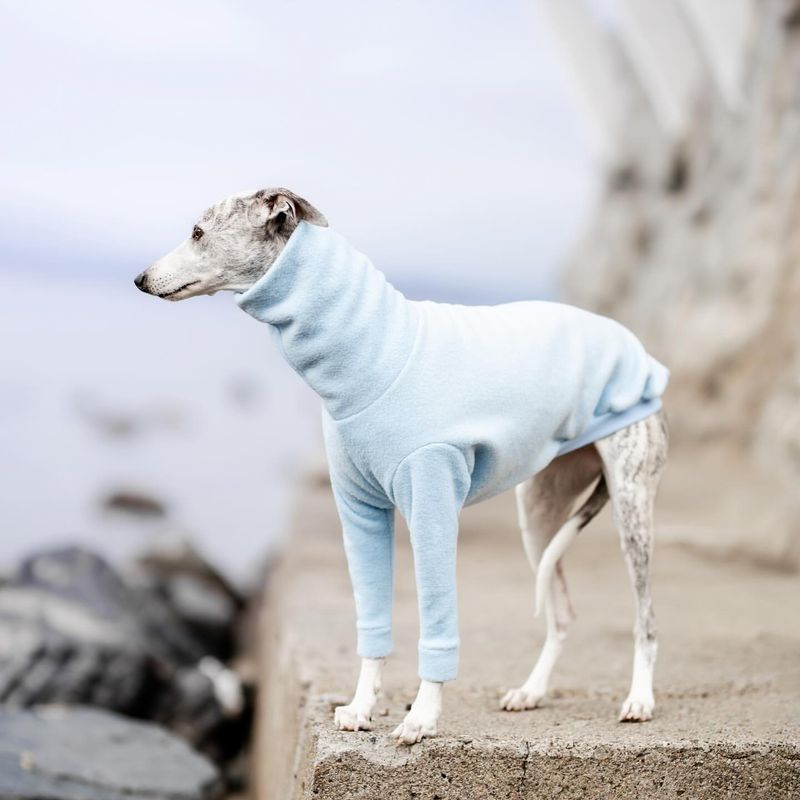
Greyhounds are known for their speed and grace, but their lean bodies and short coats make them ill-suited for cold weather. They require warm clothing to prevent discomfort and health issues when temperatures drop.
Owners should prioritize quality coats that offer insulation during winter outings. These dogs thrive in warm indoor environments, with access to cozy beds and blankets. Indoor exercise can keep them active while protecting them from the harsh cold.
Outdoor activities should be limited to brief, well-supervised sessions. Greyhounds’ susceptibility to cold means that owners must be vigilant in ensuring their warmth. Providing the right care and attention allows them to stay healthy and happy throughout the winter months. By taking appropriate measures, Greyhounds can remain comfortable even in chilly conditions.

